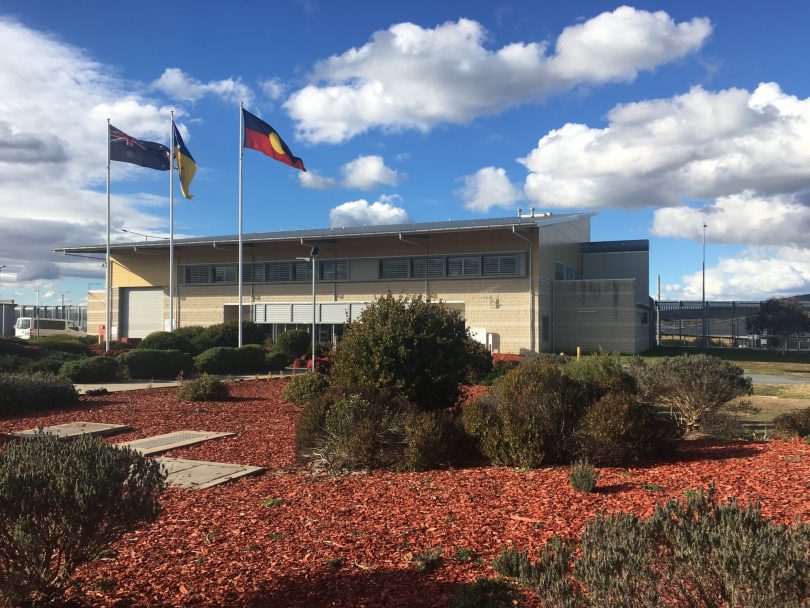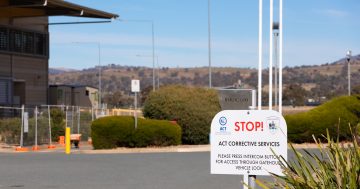
At the time of his death from a drug overdose, Mark Anthony O’Connor was in a special unit of the Alexander Maconochie Centre where prisoners were locked in their cells for 23 hours a day. File photo.
A coronial inquest has found that the sudden death of a 29-year-old Canberra prisoner in his cell on 13 May 2017 was caused by an overdose of methylamphetamine (known as ‘ice’) or a toxic combination of methylamphetamine and buprenorphine.
This occurred despite the prisoner, Mark Anthony O’Connor, being in a special unit at the Alexander Maconochie Centre with 23-hour-a-day lockdown at the time.
In his findings released on Wednesday (26 June), coroner Glenn Theakston said Mr O’Connor grew up in difficult circumstances and started using cannabis at the age of 12 and then methylamphetamine at 14. By the age of 21 he was using heroin.
Mr O’Connor was a detainee at the AMC between August 2009 and the night of his death, apart for a few months between late January and early April 2010 and a short period between late January and early February 2014.
On the day of his death, Mr O’Connor was serving a term of imprisonment in relation to offences of dishonesty. On 27 April, as a form of disciplinary action, he had been moved to a special unit where prisoners were locked in their cells for 23 hours a day and only permitted to visit the common room or outdoor area for the remaining hour.
At 6.55 pm on 13 May, Mr O’Connor’s cellmate, described as ‘Mr C’, pressed the intercom button in his cell and asked for help, reportedly saying words to the effect of ‘My celly has fainted. Miss, please hurry’ or ‘My celly’s not breathing’.
Corrections officers and medical staff provided medical assistance but Mr O’Connor was unable to be revived and was officially pronounced dead at 10.27 pm.
“Overall, the treatment of Mr O’Connor during the emergency appears to have been professional, comprehensive and appropriate,” Mr Theakston noted.
Medical tests revealed that Mr O’Connor had methylamphetamine and other drugs in his system.
“Mr O’Connor’s death was caused by multiple drug toxicity, being either an overdose due to methylamphetamine alone, or arising from the combination of methylamphetamine and buprenorphine,” the inquest found.
“It is likely that the methylamphetamine was self-administered between 6:11 pm and 6:55 pm on 13 May 2017 while Mr O’Connor was in his cell.”
In his inquest findings, Mr Theakston wrote that “during the hearing it became immediately apparent that illicit drugs were available within the AMC and could be moved easily between detainees”.
He noted that there was evidence to show that detainees would regularly place towels over the doors of their cell, which obscured the view into the cells by officers. Detainees also sometimes passed small items around the closed doors of the cells, could pass items through yard fences and, when outside their cells, could pass items between themselves.
He wrote that drugs and other items were able to be brought into the AMC, including through contact visits.
However, at the start of the inquest (held on 22, 23 January 2019), Mr Theakston indicated that he would not focus on the wider issue of drugs entering and circulating in the prison, saying he would leave this in the hands of the ACT Government to investigate further.
“I note that the submissions made on behalf of the Territory contains an undertaking by the Territory that it would undertake a review into the practice of detainees passing items through cell doors.”
Mr Theakston expressed his condolences to Mr O’Connor’s family and fiancée, saying that Mr O’Connor was a relatively young man and his death would have been a shock to them.














